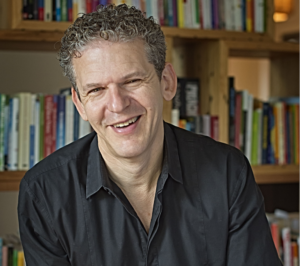Robyn Moffitt, Grant Brinkworth, Manny Noakes & Philip Mohr (2012) A comparison of cognitive restructuring and cognitive defusion as strategies for resisting a craved food, Psychology & Health, 27:sup2, 74-90, DOI: 10.1080/08870446.2012.694436
AACBT Vic Pub Discussion: Harris – Art and Science of Cognitive Defusion
This event has passed.
25 May 2022
06:30 pm
-
07:30 pm
Lord Newry Hotel
543 Brunswick St, Fitzroy North VIC 3068, Australia
- Russ Harris
***SOLD OUT***
The Art and Science of Cognitive Defusion
Presenter: Russ Harris
Psychological Flexibility

Once you know the nuts and bolts of cognitive defusion, you’ll have a whole smorgasbord of strategies for rapidly taking the impact out of difficult cognitions – even if your client continues to believe them!
Cognitive defusion is one of the key therapeutic processes in Acceptance and Commitment Therapy, ACT. Cognitive fusion means your cognitions dominate your actions (overt behaviour) or your attention (covert behaviour) or both. Cognitive defusion means responding flexibly to your cognitions so they can influence but do not dominate your behaviour.
The aims of cognitive defusion are to a) see the true nature of cognitions: that they are nothing more or less than constructions of words and pictures and b) respond to cognitions more flexibly, in terms of how helpful they are (rather than how true/false or positive/negative they are).
Cognitive defusion techniques involve paying attention to our cognitions with:
- Curiosity: We see their true nature, as constructions of words and pictures, and we explore whether they are helpful or not.
- Openness: We allow our thoughts to be present, without challenging them, pushing them away, suppressing them, or distracting from them. We make room for them and let them come and stay and go in their own good time, neither struggling with them nor allowing them to dominate us.
- Flexibility: If our cognitions are helpful, we make good use of them; if not, we let them be.
There are over 200 cognitive defusion techniques written up in ACT textbooks and protocols; in this talk you’ll get to experience some of the most popular and effective ones. You’ll learn how cognitive distancing techniques in CBT are easily adaptable as cognitive defusion methods. (In fact, defusion originally evolved from cognitive distancing!) And you’ll also learn how to defuse from difficult cognitions even if you still believe them!
About this event:
The format will include experiential, didactic, and roleplay techniques.
Key Learning Objectives
- Learn what cognitive defusion is and how it helps clinically
- Learn a range of practical cognitive defusion skills and techniques
- Learn how skilful brief psychoeducation can foster and enhance defusion
This session is designed for those with a casual familiarity – attendees will be assumed to have basic experience in the topic area.
Implications / Applications of Learning for Clinical Practice
This session will expand the scope of your CBT practice by helping you to add some useful skills from Acceptance and Commitment Therapy.
Duration & Format / Training Modalities
This workshop has 60 minutes CPD, and does not include any catering in the ticket price.
Door opens at 6pm for a 6:30pm start.
References – readings
- Assaz, D.A., Roche, B., Kanter, J.W. et al. Cognitive Defusion in Acceptance and Commitment Therapy: What Are the Basic Processes of Change?. Psychol Rec 68, 405–418 (2018). https://doi.org/10.1007/s40732-017-0254-z
- Deacon, Brett J., Fawzy, Tamer I., Lickel, James J., Wolitzky-Taylor, Kate B. Cognitive Defusion Versus Cognitive Restructuring in the Treatment of Negative Self-Referential Thoughts: An Investigation of Process and Outcome. Journal of Cognitive Psychotherapy Vol 25 Issue 3, DOI: 10.1891/0889-8391.25.3.218
- Barrera, T., Szafranski, D., Ratcliff, C., Garnaat, S., & Norton, P. (2016). An Experimental Comparison of Techniques: Cognitive Defusion, Cognitive Restructuring, and in-vivo Exposure for Social Anxiety. Behavioural and Cognitive Psychotherapy, 44(2), 249-254. DOI:10.1017/S1352465814000630
-
AACBT members have free tickets, but MUST book to reserve their place.
Non-members can join now and gain all of the other advantages of AACBT Membership!
There are no early bird rates for this event and please note that there are no door sales possible.
Please contact info@aacbt.org.au for more information.
COVID Safety:
Please note, the venue will be following all relevant Public Health Orders and checking delegates as per their obligations. Density, and mask requirements will be in line with relevant government guidelines. As per all events, please do not attend if you are unwell.
If you are required to cancel your attendance owing to a COVID isolation, please contact us for a full refund or ticket transfer.
Images: supplied
Mr
Russ Harris
Since 2005, Russ has run over 800 two-day workshops and provided ACT training for 60,000 health professionals. He has authored four ACT textbooks (ACT Made Simple, Trauma Focused ACT, Getting Unstuck in ACT, ACT Questions & Answers), and four ACT-based self-help books (The Happiness Trap, The Reality Slap, The Confidence Gap and ACT with Love). In addition, he has been the co-authored of two... more about Russ Harris


